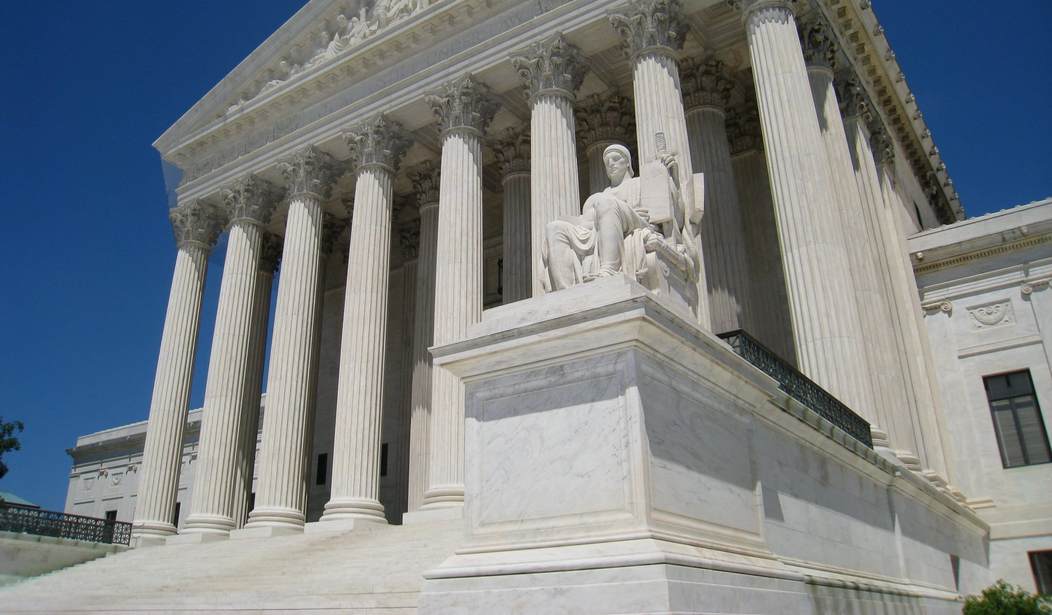On Tuesday, the Knights of Columbus (KOC) and Marist Poll released a survey showing that almost two-thirds of Americans would like the Supreme Court to overturn the 1973 Roe v. Wade decision, even if they would not advocate directly against the decision.
“Almost two-thirds, 65 percent, would like the Supreme Court to reinterpret Roe in a way that would functionally overturn it,” Andrew Walther, KOC’s communications and government affairs executive, told reporters on a call.
Rather than asking Americans whether they support or oppose Roe v. Wade, Marist and KOC asked about the ideal outcome of a reconsideration of the Court’s original ruling. The poll asked respondents, “Which comes closest to your view of what the Supreme Court should do when it reconsiders Roe v. Wade, the 1973 ruling making abortion illegal in the United States?”
Most Americans either wanted the Court to make abortion illegal (16 percent) or to “allow states to make certain restrictions” (49 percent). Both of these outcomes would effectively overturn Roe v. Wade.
Less than a third of Americans (30 percent) said abortion should be “legal without restriction.” Another 6 percent admitted they were unsure.
The KOC/Marist poll found that even though 55 percent of Americans identify as “pro-choice,” strong majorities of Americans in each party would restrict abortion to the first three months of pregnancy, or to cases of rape and incest or to save the life of the mother.
A full 60 percent of Democrats, 92 percent of Republicans, and 72 percent of independents support this kind of abortion restriction.
The simple terms “pro-life” and “pro-choice” do not capture specific policy preferences or even larger views about whether or not a human fetus is life, Walther argued.
A majority of American adults (52 percent) agreed that life begins either at conception (42 percent) or in the first three months of pregnancy (10 percent). Only 19 percent said life begins when a fetus is viable outside the womb, and 13 percent said life begins when the baby is born.
When Americans were asked about the “scientific view of a human fetus,” 56 percent said “it is a unique life,” while only 35 percent said “it is part of a woman’s body.”
On policy, 75 percent of Americans opposed or strongly opposed the use of taxpayer dollars to subsidize abortion in other countries (in violation of the “Mexico City Policy”), and 54 percent opposed or strongly opposed using taxpayer dollars to fund a woman’s abortion in the U.S. Another 62 percent opposed or strongly opposed the abortion of a child diagnosed with Down syndrome.
A full 59 percent of Americans in the survey said they would support banning abortion after 20 weeks, except to save the life of the mother.
Americans broadly supported conscience protections for doctors and nurses as well. When asked if they think “doctors, nurses, or organizations who have moral objections to abortion should or should not be required to perform or provide insurance coverage for abortions,” 55 percent said they should not be legally required, while only 35 percent opposed this kind of conscience protection.
The Roe v. Wade positions may prove most eye-opening, however. Under the Supreme Court’s 1973 decision, upheld in later rulings, the states cannot have their own restrictions on a woman’s constitutional right to abortion up until the point of viability outside the womb. This does not square with the opinions of most Americans, whether or not they would explicitly advocate for Roe v. Wade to be repealed.
The 2019 March for Life will take place this Friday, marking the anniversary of Roe v. Wade. Pro-life activists will protest the Supreme Court decision, and it seems the majority of Americans agree with them.
The poll involved 1,066 respondents from a random digit dial telephone survey between January 8 and January 10, 2019. It has a margin of error of plus or minus 3.7 percentage points.
Follow the author of this article on Twitter at @Tyler2ONeil.









Join the conversation as a VIP Member